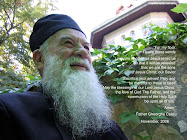 Do Romanians care about Switzerland?
Do Romanians care about Switzerland?On Sunday, Switzerland will vote on whether to extend work rights to Romania and Bulgaria, and a vociferious debate rages on billboards, radios and in cafés throughout Switzerland as to whether the renewal and extension would be a good thing. But are Romanians actually planning on coming? In the second of her series from Romania, WRS’s Jackie Campo finds out.
By Jackie Campo, World Radio Switzerland
Ce cred romanii despre Referendumul rasist din Elvetia
The incense hangs heavy inside this church, the head Orthodox church for Romania. It’s a warm haven against the cold rain, and at six o’clock on a week night, it’s full with people of all ages, kneeling on the heavy carpets, praying and chanting.
Part of the church complex, only 10 yards from the church entrance, is a building that used to be a communist headquarters before the revolution.
It’s this kind of paradox that makes up the culture of Romania.
As Switzerland prepares for perhaps opening up its labour market to Romanians, it’s the culture, not the economics, that seems to weigh on the minds of Romanians most.
Carol Capita is a professor at the University of Bucharest. He says it’s important to Romanians to feel a sense of belonging, that they’re not interested in moving some place that’s so different from what they know. Professor Capita knows many students who have relocated to Italy, Spain and France.
CAPITA: They seem to have difficulties in integrating in the daily life, because we have certain cultural codes. And in Western Europe, although they are in a setting with other young people, they tend to have a lag in integrating – in understanding the cultural codes of other countries.
But a sampling of University students finds that they think that they do have a connection with Western Europe, at least some of the countries.
STUDENT: You know, Spain, Italy, the Latin countries. Because we’re Latin and we consider speaking a language that’s more common to us is an easier way for us to adapt.
And many young Romanians speak French. So have they thought about moving to Switzerland after they graduate?
STUDENT: I don’t think so because I have projects here in Romania and I want to fulfil my projects in Romania. But it will be nice to visit Switzerland as a tourist.
STUDENT: I actually have the same opinion he does because I really want to fulfil my dreams here.
There are one or two outliers who do react positively.
STUDENT: All I know is that Switzerland has a lot of opportunities for young people and great universities.
Romanians, however, don’t appear to be taking advantage of those opportunities. The Swiss Ambassador to Romania, Livio Hurzeler, says the numbers tell the story.
HURZELER: For instance, last year Romanians were entitled to approximately a thousand work permits. They used 76. They used 76 out of a thousand. So just to say that these people in Switzerland who think that they will be invaded, I’m sorry to tell you but it is rubbish. It is just rubbish.”
Professor Capita tends to agree. He says the reality is different from the dream of moving to a clean, orderly, and rich country.
CAPITA: If we have our opportunities to just go there, check things out, participate in conferences, we wouldn’t be that interested in just flooding in. We love what Germans call gemütlichkeit, a comfortable way of life. Going in a foreign country means a lot of stress. It might be rewarding financially, but in terms of private life it might not be that good. And we tend to take private life and a good family life very seriously.
Hanging on to a national identity, a common culture, is a recurring theme as Europe becomes more and more integrated.
Newspaper editor Victor Roncea sees Switzerland as no exception. He wonders if the Swiss People’s Party campaign against the free movement labour accord isn’t tapping into a Swiss desire to slow things down.
RONCEA: I think maybe it’s the message that Swiss people want to send out of Europe that we need some way to protect our culture that’s defined by hundreds and hundreds of years and we see it changing maybe too fast.
UPDATE - ZIUA: Elvetia ne da de munca


































































No comments:
Post a Comment